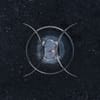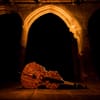
Edition #142
This week, we recommend the new songs by Moictani, A=f/m, Obliecht, Lizki, and Moletrap.

This week, we recommend the new songs by Moictani, A=f/m, Obliecht, Lizki, and Moletrap.

Dutch-German Luna Morgenstern’s EP «heartbreak hotel» glitters in all shades of hyperpop. Some tracks excel, and others try a tad too much.

Switzerland’s rising star of Italo Disco, Valentino Vivace, presents his sophomore album. A short burst of retro vibes, neon lights, and tropical nights. It is an escape from the grey reality.

Ronan Courty is set to release his album „Synesthesia“ on January 24, 2025. Today, he premieres a stunning music video shot by Mathieu Fisson, including album excerpts.

Now is the time to resist and reclaim. Artists, labels, venues, media, and fans need to come together.

This week, we recommend the new songs by Soft Loft, Long Tall Jefferson, OK Go, Andrea Wellard, and Mon Rayon.

Giving some perspectives on how we conduct our reviews and how to read the ratings.

Franz Ferdinand often rely on their trusted recipe on their sixth studio album, «The Human Fear». But it is the other moments that are truly exciting.